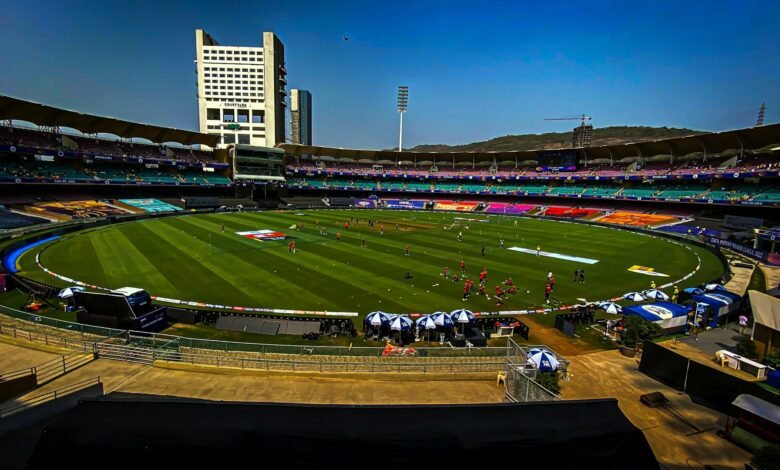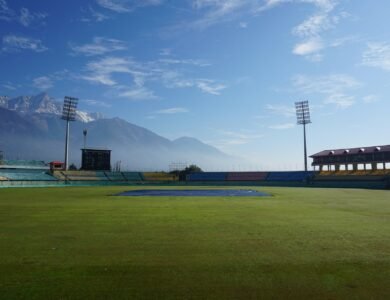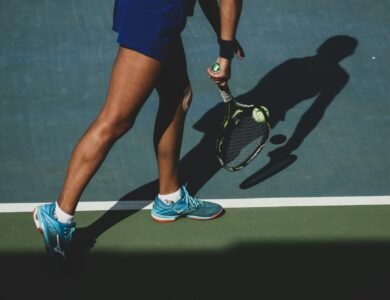
The Indian Premier League (IPL) 2025 has kicked off with significant changes to its rulebook, introducing innovations that promise to reshape how the game is played in this premier T20 tournament. The Board of Control for Cricket in India (BCCI) has implemented several key modifications after extensive consultations with team captains, coaches, and managers during a pre-season meeting in Mumbai on March 20, 2025. These changes aim to create a more balanced playing field while enhancing the excitement for fans worldwide.
Major Rule Changes for IPL 2025
Return of the Saliva Ban
In a significant reversal of COVID-era protocols, bowlers are now permitted to use saliva to shine the cricket ball611. This marks the first time since the pandemic that this traditional ball maintenance practice has been allowed in a major tournament8. The decision came after a majority consensus from IPL captains during their meeting in Mumbai8. While the International Cricket Council (ICC) had made the saliva ban permanent in 2022, the IPL operates under its own regulations, potentially setting a precedent for the global game8. This change is expected to reintroduce the dynamics of swing and reverse swing, giving bowlers additional tools to counter batsman dominance12.
Two-Ball System to Counter Dew
Perhaps the most innovative change is the introduction of a second ball option during evening matches to counter the effects of dew79. Under this rule:
- The team bowling second can request a ball change once after the 10th over711
- This request can be made regardless of visible dew conditions79
- Umpires must replace the ball with another of similar wear and tear711
- The bowling team cannot choose the replacement ball themselves7
- Umpires retain authority to change the ball before the 10th over if it’s too wet, out of shape, lost, or damaged711
This rule specifically addresses the long-standing issue of dew disadvantaging teams bowling second in night games, creating a more level playing field and reducing the impact of the toss912.
Expanded DRS Scope
The Decision Review System (DRS) has been expanded to include height-based no-ball reviews and wide-ball reviews outside the off-stump811. This updated system will utilize Hawk-Eye technology and ball-tracking to assist umpires in making more accurate and consistent decisions1112. For the first time, teams can challenge height wides and off-side wides, though leg-side wides will still be determined solely by on-field umpires8.
New Code of Conduct with Demerit Points
The IPL has introduced a new Code of Conduct featuring a demerit points system similar to the ICC’s approach911. Key aspects include:
- Demerit points and suspension points remain valid for 36 months911
- A Level 1 offence leads to deduction of 25-75% match fees with demerit points6
- A Level 2 offence attracts four demerit points6
- For every four demerit points, the match referee can impose penalties up to 100% fine or additional demerit points6
- The previous system of captains receiving match bans after three over-rate offences has been eliminated9
Expanded Role of the Fourth Umpire
The BCCI has significantly broadened the responsibilities of the fourth umpire for IPL 202524. These expanded duties include:
- Conducting random bat size checks on both match days and practice sessions1410
- Monitoring bowlers who leave the field after completing their quota of overs1210
- Overseeing players who frequently leave the field for rest1410
- Ensuring only authorized personnel access the pitch area before and during games14
- Managing the selection and supervision of match balls14
- Acting as an emergency third umpire when required510
The BCCI has emphasized that players should not approach the fourth umpire for grievances regarding on-field decisions12. This expansion of duties aims to ensure fair play and proper adherence to rules throughout the tournament.

Super Over Regulations
The IPL has also clarified its Super Over rules for deciding tied matches3:
- Unlimited Super Overs are allowed but must be completed within one hour from the end of the main match3
- The first Super Over must start within 10 minutes from the match end3
- Subsequent Super Overs must begin within five minutes of the previous one ending3
- Each team is entitled to one unsuccessful DRS review per Super Over3
- Only players from the main match, including concussion replacements, may participate3
- The team batting second in the main match bats first in the Super Over3
Concussion Substitutes and Other Changes
The BCCI has also updated regulations regarding concussion substitutes1:
- A like-for-like replacement can be chosen from nominated substitutes1
- If a wicketkeeper sustains a concussion, the replacement can be selected from the available squad1
- If an overseas player suffers a concussion and the team has already used its four overseas slots, the replacement must be an Indian player1
Additionally, for matches affected by rain or interruptions, a retired batter will now count as a wicket lost in Duckworth-Lewis-Stern (DLS) calculations, ensuring greater fairness in target adjustments1.
Comparison of Key IPL 2025 Rule Changes
| Rule Change | Previous System | New System for IPL 2025 |
|---|---|---|
| Ball Maintenance | Saliva use prohibited since COVID-19 | Bowlers permitted to use saliva to shine the ball |
| Dew Management | No specific provision | Option for second ball after 10th over in second innings of night games |
| DRS Scope | Limited to dismissals and certain no-balls | Expanded to include height-based no-balls and off-side wides |
| Code of Conduct | Direct match bans for over-rate offences | Demerit points system with 36-month validity period |
| Fourth Umpire Role | Limited supervisory duties | Expanded responsibilities including bat checks and player monitoring |
| Team Sheet Submission | Before toss | After toss, with separate sheets for batting and bowling sides |
| Super Overs | Limited provisions | Detailed regulations with time constraints and DRS allowances |
Impact on Game Strategy
These rule changes are expected to significantly impact how teams approach matches in IPL 2025:
- Bowling tactics: The return of saliva use will likely revitalize conventional and reverse swing bowling, potentially giving fast bowlers more options against aggressive batsmen.
- Second-innings strategy: The two-ball system reduces the disadvantage of bowling second in night games, potentially changing how captains approach the toss and team selection.
- DRS usage: The expanded DRS scope will require teams to develop new strategies for when to use their reviews, particularly for marginal wide calls.
- Player behavior: The demerit points system encourages better on-field conduct while removing the immediate threat of captain suspensions for slow over rates.
- Equipment monitoring: With fourth umpires now checking bat sizes, players will need to ensure strict compliance with equipment regulations.
FAQ: IPL 2025 Rule Changes
Q: Why has the BCCI decided to lift the saliva ban?
A: The decision follows consultations with all 10 teams and marks a return to traditional ball maintenance practices, giving bowlers more options to generate swing.
Q: How will the two-ball system work in practice?
A: The bowling captain can request a ball change after the 10th over of the second innings in evening matches. Umpires will replace the ball with one of similar wear and tear.
Q: Can teams challenge all wide calls using DRS now?
A: Teams can challenge height-based wides and off-side wides using DRS with Hawk-Eye technology, but leg-side wides remain at the on-field umpire’s discretion.
Q: How long do demerit points remain on a player’s record?
A: Demerit points remain valid for 36 months (3 years) under the new Code of Conduct system.
Q: What happens if a Super Over also ends in a tie?
A: Multiple Super Overs can be played until a winner emerges, provided they are completed within one hour from the end of the main match.
Q: Can the fourth umpire check bat sizes during practice sessions?
A: Yes, the fourth umpire is now empowered to conduct random bat size checks on both match days and during practice sessions.
Early Tournament Reactions
The IPL 2025 season kicked off on March 22 with a high-octane match between Royal Challengers Bengaluru (RCB) and defending champions Kolkata Knight Riders (KKR)4. After KKR posted 174-8 from their 20 overs, thanks to Ajinkya Rahane’s impressive innings, RCB successfully chased down the target in just 16.2 overs with seven wickets to spare, powered by half-centuries from Phil Salt and Virat Kohli4.
The new ball change rule was implemented for the first time during a recent match, creating significant interest among fans and analysts7. While the practical effects of these rule changes are still being evaluated, they represent the IPL’s continued commitment to evolving the game and addressing challenges that have affected competitive balance in previous seasons.
Conclusion
As the IPL 2025 season progresses, these rule changes will undoubtedly influence match outcomes and team strategies. The BCCI’s willingness to innovate with rules like the two-ball system demonstrates the league’s commitment to maintaining competitive balance while enhancing the spectator experience. The expanded role of the fourth umpire also reflects a growing emphasis on fair play and proper governance of the game.
With these changes, IPL 2025 promises to deliver exciting cricket while potentially setting new standards that could influence the global game. As teams adapt to these modifications, fans can expect to see evolving strategies and potentially more balanced contests between bat and ball in what has become cricket’s most innovative and influential T20 league.



